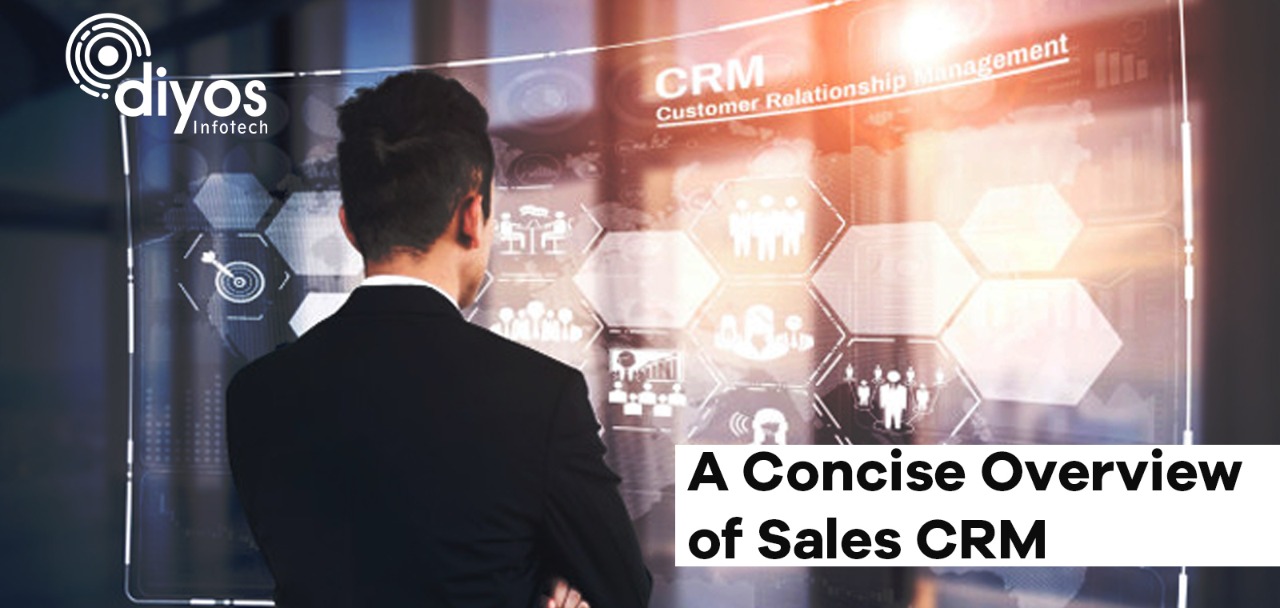A Concise Overview of Sales CRM
Most people think of CRM (Customer Relationship Management) as software or a tool that helps them maintain and develop relationships with prospects and customers.
Customer Relationship Management, on the other hand, differs depending on the department of which you're speaking. A CRM could be used by a support team to handle customer tickets, or it could be used by marketing departments to analyze data.
What do we mean when we say CRM?
Customer Relationship Management (CRM) is a technique for handling all the company's customer and future customer relationships and experiences. It assists you in increasing your profitability.
When people speak about CRM, they typically mean a CRM framework, which is a tool that aids in contact management, sales management, workflow processes, efficiency, and other tasks.
Customer Relationship Management allows you to concentrate on your company's relationships with specific individuals, such as clients, service users, colleagues, or suppliers. CRM isn't just for sales anymore. Moving beyond CRM as a sales and marketing tool and embedding it in the company – from HR to customer support and supply-chain management – will result in significant productivity gains.
How does Customer Relationship Management work?
CRM software includes features that allow users to monitor customer and company interactions through multiple channels. Communication modes, emails, phone calls, and other methods are among these networks.
Sales and marketing teams may use CRM software to handle the entire sales and marketing funnel, from lead certification to opportunity management, forecasting, and deal closing. It allows customer service teams to handle customer demands and automate service operations by adopting pre-defined processes for providing excellent customer service.
CRM systems are jam-packed with monitoring features that keep track of a slew of online customer interactions. CRM also automates repetitive processes and gives managers tools to monitor and measure the company's output and productivity. CRM software, for example, will remind you of tasks that must be completed by a certain date. You can program it to do things like send emails and make phone calls on a regular basis. Anything you do with the CRM is tracked, allowing you to make better action plans to close any future sales. Some CRMs also have analytics features, allowing users to monitor the effectiveness of various lead generation and conversion efforts. Take a look at the core features of the best sales CRM software in Hyderabad offered by Diyos Infotech to get a better idea of what they can do for you.
Increase the number of current customers who recommend you
Cross-selling and up-selling opportunities become apparent as you gain a greater understanding of your clients, allowing you the opportunity to attract new business from current customers.
You'll be able to keep your customers satisfied with better service if you have more detail. Repeat customers are more likely to become happy, and repeat customers spend more – up to 33% more, according to reports.
With a sales CRM, you can cut the sales time to half
Developing lasting relationships is the key to establishing a loyal customer base. A sales CRM frees up a sales rep's time by automating administrative and data processing activities, allowing them to spend more time connecting with leads. Reps can build meaningful connections with more prospects in less time, enabling them to move leads into their pipeline faster.
Cost-cutting
CRM is easy to set up and use. A cloud-based system requires no special setup and requires no hardware, lowering IT costs and eliminating the hassle of version control and upgrade schedules.
Cloud-based CRM systems are typically priced according to the number of users who use the system and the functionality that you need. This is both cost-effective and versatile, allowing you to scale up and hire more employees as the company expands. Salesforce, Diyos CRM and other cloud-CRM systems are also functionally versatile, so you don't have to pay for features you don't need.
Sales can be made easier
A sales CRM is a method for keeping track of all interactions with prospects and buyers during the sales process. A touchpoint may be any direct or indirect contact between sales reps and their leads. The tool keeps track of prospect contact, organizes customer data and automatically sends reminders to follow up on leads, and more.
Essentially, a sales CRM streamlines the lead nurturing operation. Administrative activities and data organization are both automated, allowing you to spend less time on data entry and more time focusing on developing productive relationships with prospects.
Improve the quality of customer data
Data entry by hand is vulnerable to human error. Let's say a salesperson has to manually record the contact details for a lead. They can inadvertently enter incorrect information or forget to provide the lead's contact information.
Sales CRMs reduce mistakes by automatically tracking any action a sales rep takes inside the app, such as making a sales call or sending a follow-up email. These activities are reflected in real-time activity feeds and individual contact cards with the CRM by Diyos Infotech that offers the best sales CRM software in Hyderabad . You can easily filter the feed by operation type or user if you're looking for precise information about a prospect or case.
Last but not least, many sales CRMs, such as that of Diyos Infotech, have data enrichment tools & Mobile Application. These tools use online databases to populate a lead's contact card with comprehensive details. This not only reduces the risk of reps receiving inaccurate data but also reduces the amount of time spent following leads.
A sales CRM not only makes reliable, informative lead information more available, but it also aids in the identification of underlying performance or organizational issues that may be limiting your company's growth. Therefore, the best sales CRM software in Hyderabad awaits you.


